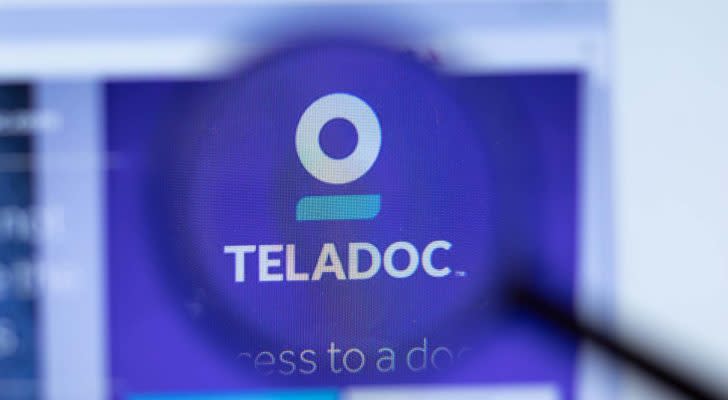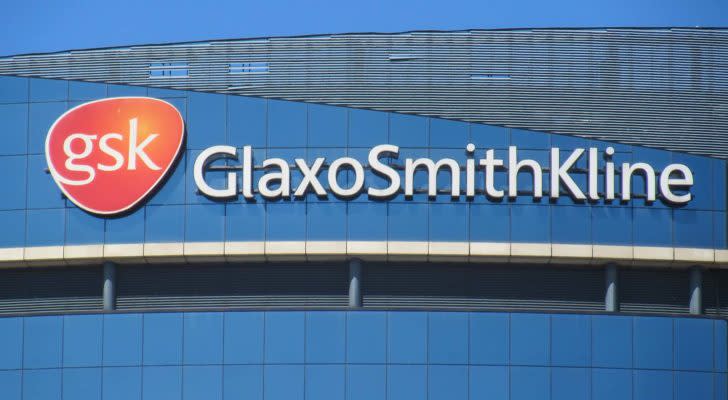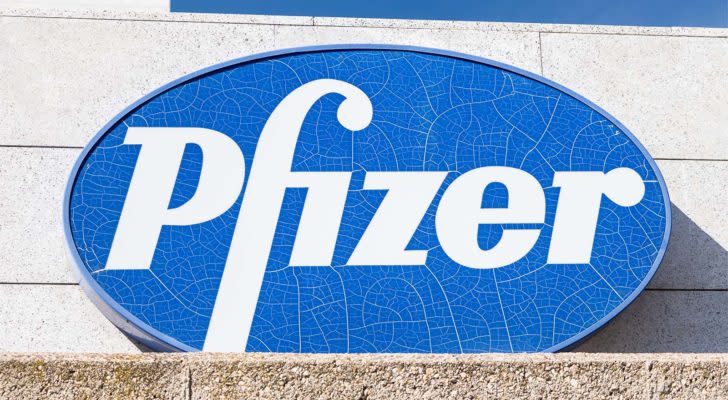The 7 Best Healthcare Stocks to Invest In for Big Gains in 2024
Healthcare stocks in 2024 are charting an impressive course, emerging as formidable contenders in the investment sphere. After weathering a challenging 2023, these stocks are on the rise, with the S&P 500 Health Care index showcasing an almost 11% rise in the last three months alone.
This uptick is more than a mere rebound; it’s a testament to the enduring resilience and importance of the healthcare sector.
Moreover, as an integral part of both the financial markets and our everyday lives, healthcare stocks in 2024 offer a beacon of stability amidst the market uncertainty.
InvestorPlace - Stock Market News, Stock Advice & Trading Tips
Diversifying your portfolio with these stocks is a wise move to spread risk and a strategic investment in continuous innovation. Despite being under the radar, healthcare stocks have been instrumental in driving forward medical breakthroughs, ensuring a healthier tomorrow.
Their unyielding growth and development mirror the sector’s commitment to enhancing healthcare outcomes, making them a prudent and forward-thinking choice for investors.
Intuitive Surgical (ISRG)

Source: michelmond / Shutterstock.com
Intuitive Surgical (NASDAQ:ISRG) continues to redefine the healthcare landscape, effectively harnessing the burgeoning trend of robotic-assisted surgeries.
This vanguard in the medical field is setting the gold standard with an A-graded profitability portfolio and a stellar track record of double-digit expansion across key metrics over a five-year span.
The company’s recent quarterly report is a testament to ISRG’s unwavering ascent. Robotic surgical procedures have surged by 19%, with a solid 17% annual growth rate since 2019.
ISRG’s arsenal of digital tools, including surgical simulators, the My Intuitive app, and the Intuitive Hub media management and telepresence system, are pivotal to its expansive ecosystem, driving unprecedented operational efficiency.
In a striking showcase of growth, the use of the My Intuitive app soared by a remarkable 140% year-over-year in the third quarter. Similarly, installations of the Intuitive Hub spiked by 58%, while captured surgical cases saw an impressive 61% year-over-year increase.
These figures indicate ISRG’s unwavering commitment to innovation and its unchallenged position at the forefront of the healthcare revolution.
Johnson & Johnson (JNJ)

Source: Alexander Tolstykh / Shutterstock.com
Johnson & Johnson (NYSE:JNJ) is not just climbing the ladder in the medical tech and innovative medicine sectors; it’s setting a new standard.
J&J’s track record of dispensing dividends for 61 consecutive years is a testament to its stability and enduring potential for expansion.
The company’s financial health has improved substantially, with the recent fourth-quarter results showing vigorous growth. A striking revenue of $21.4 billion, marking a 7.3% increase, and an EPS leap of 39% year over year to $1.70 showcase the firm’s financial prowess.
Looking forward, J&J isn’t resting on its laurels, projecting a sales growth of 5% to 6% in 2024 on the back of incredible full-year sales of $85.2 billion.
For investors seeking a mix of reliability and growth, JNJ stock, with its 3% dividend yield and an annual dividend of $4.76, emerges as a top-income stock pick in the pharmaceutical realm. With Balversa clinching full FDA approval, J&J isn’t just chasing success; it’s pioneering the future of targeted therapies in advanced bladder cancer.
The strategic move to acquire Ambrx Biopharm for $2 billion isn’t just an expansion; it’s a calculated stride towards diversifying its portfolio, bumping revenue, and cementing its status in precision medicine.
Vertex Pharmaceuticals (VRTX)
Vertex Pharmaceuticals (NASDAQ:VRTX) is carving out a niche in the biotechnology landscape, offering a variety of treatments from sickle cell disease to cystic fibrosis.
The firm’s recent triumph with FDA approval for Exa-Cel, also known as Casgevy, marks a major leap in gene-editing therapies. Developed in collaboration with Crispr Therapeutics (NASDAQ:CRSP), Casgevy stands as the first FDA-approved therapy employing the CRISPR/Cas9 technology. This positions it at the forefront of future advancements in rare disease treatments.
Reflecting on the past year, Vertex’s financial growth is stellar, boasting over an 11.2% jump in net income. This fiscal robustness is underscored by a significant 6% uptick in product sales, amounting to $2.48 billion, fueled by the success of Trikafta, its flagship cystic fibrosis treatment.
The FDA nod for Casgevy heralds a new era for Vertex Pharmaceuticals, unlocking new market avenues beyond cystic fibrosis. This breakthrough in gene-editing therapy for sickle cell disease is more than an expansion; it’s a strategic pivot positioning Vertex as a linchpin in the biotech sphere.
Teladoc Health (TDOC)

Source: Postmodern Studio / Shutterstock.com
Teladoc Health (NYSE:TDOC) is at the helm of revolutionizing global healthcare, seamlessly connecting patients with medical professionals through its advanced digital platforms.
Its operational prowess is shown by an impressive 8% year-over-year revenue growth, amounting to approximately $660.2 million, along with a staggering 73% surge in adjusted EBITDA, reaching around $88.8 million, underscoring the firm’s financial vigor and market prominence.
Strategically, Teladoc’s recent partnership with Sword Health is a testament to its commitment to expanding and improving its virtual care offerings.
Its expertise is further highlighted by the successful enrollment of more than 1.1 million active users in its chronic care programs, a clear indicator of the rising reliance on virtual healthcare solutions.
The company’s approach goes beyond mere treatment, embracing a holistic strategy with over two-thirds of deals involving bundled solutions, especially in chronic care management.
Adding nearly four million patients to its virtual care programs is not just a number; it’s a testament to Teladoc’s exceptional ability to outpace its competitors, fueled by a compelling value proposition that resonates deeply with clients and members alike.
GSK (GSK)

Source: Willy Barton / Shutterstock.com
GSK (NYSE:GSK) is another top player in the pharma sector, which comfortably exceeded expectations with its stellar financial performance in the third quarter of 2023.
The firm reported a robust 10% increase in sales, soaring to 16% when excluding coronavirus-related products. Also, vaccine sales surged impressively by 33%, with Shingrix and Arexvy products delivering superb returns.
A pivotal achievement for GSK has been the triumph of Nucala’s approval in China, making it the first anti-interleukin-5 treatment authorized. This breakthrough is set to make a major impact, addressing the needs of approximately 46 million adults grappling with severe eosinophilic asthma.
In a strategic alliance with Hong Kong-based Insilico Medicine, the company harnesses AI capabilities to pioneer drug discovery and development efficiently, with plans to conclude 13 clinical trials and submit seven new medicinal products for FDA approval.
This forward momentum is further bolstered by the strategic acquisition of Aiolos Bio, promising to fortify GSK’s standing in the sector.
Medtronic (MDT)

Source: JHVEPhoto / Shutterstock.com
Medtronic (NYSE:MDT) exemplifies a seamless fusion of stability and solid growth potential, a combination of a rarity in the market.
In the ever-relevant healthcare space, Medtronic distinguishes itself through its sector dominance and strong dividend stature, boasting a yield of 3.2% coupled with a decade of persistent dividend growth.
The company’s partnership with Nvidia (NASDAQ:NVDA) to develop an AI-driven diagnostic tool is a testament to Medtronic’s stance at the nexus of growth and stability.
CEO Geoff Martha’s recent emphasis on leveraging AI in refining clinical decisions, spurring treatment innovation, and tailoring patient care further cements Medtronic’s role as a vanguard in integrating AI within MedTech.
Medtronic’s upbeat revision of its full-year outlook, spurred by a robust second-quarter performance, underscores its dynamism and adaptability.
The diabetes division, in particular, boasted an impressive 10% year-over-year growth, contributing to a solid $8 billion in sales revenue and vigorous growth across all business sectors. This resilience is highlighted by the successful U.S. launch of the MiniMed 780G insulin pump, a testament to its relentless innovation.
Pfizer (PFE)

Source: Manuel Esteban / Shutterstock.com
Pfizer (NYSE:PFE) caught the market’s eye with its fourth quarter earnings, delivering a surprising profit as its coronavirus medications outperformed expectations by a comfortable margin.
Defying analyst forecasts, the pharmaceutical giant posted a fourth quarter EPS of 10 cents, starkly contrasting the anticipated 22 cent loss.
Moreover, as its revenue dipped to $14.25 billion, narrowly missing the $14.42 billion Wall Street consensus, the sales drop of 41% from the previous year wasn’t as steep as many had feared.
In the face of dwindling COVID-19 business due to lower infection rates globally, Pfizer pivoted precisely. The company expects sales of $58.5 billion to $61.5 billion in 2024, with earnings projected at $2.05 to $2.25 per share. This foresight reflects resilience and a strategic vision for growth beyond the pandemic.
The acquisition of cancer drug specialist Seagen, a $43 billion strategic move completed in the fourth quarter, is a bold statement of Pfizer’s commitment to revitalizing investor confidence.
It is diversifying into cell therapy and liver disease treatment and streamlining operations to achieve a staggering $4 billion in annual savings.
On the date of publication, Muslim Farooque did not have (either directly or indirectly) any positions in the securities mentioned in this article. The opinions expressed in this article are those of the writer, subject to the InvestorPlace.com Publishing Guidelines
Muslim Farooque is a keen investor and an optimist at heart. A life-long gamer and tech enthusiast, he has a particular affinity for analyzing technology stocks. Muslim holds a bachelor’s of science degree in applied accounting from Oxford Brookes University.
More From InvestorPlace
ChatGPT IPO Could Shock the World, Make This Move Before the Announcement
Musk’s “Project Omega” May Be Set to Mint New Millionaires. Here’s How to Get In.
The post The 7 Best Healthcare Stocks to Invest In for Big Gains in 2024 appeared first on InvestorPlace.
